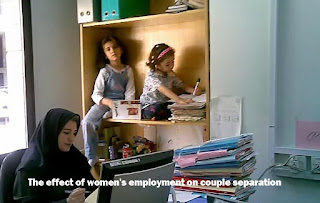The born Children from modern fertility from a jurisprudence and legal point of view ( Article: Uterine replacement contracts )
a M.A in Family Law, Department of Islamic Law and
Education, Kerman Branch, Islamic Azad University, Kerman, Iran
b Ph.D. in Jurisprudence and Islamic Law,
Assistant Professor of Islamic Jurisprudence and Foundations, Kerman
Branch, Islamic Azad University, Kerman, Iran
Site address and place of publication of the
article: http://parisconf.com/en
The focus of the Conference: Humanities,
Law
Article Axis: Investigating the legitimacy the
uterine replacement contracts of Children Born of Modern Fertility, Law
Investigating
the legitimacy and implementation of alternative uterine contracts (uterineleasing) in new methods of reproduction from the perspective of Imamieh
jurisprudence and Iranian law
Abstract
One of the most
important human achievements in the field of medicine is the treatment of
infertility in couples using modern methods of reproduction. This great
scientific progress, in addition to meeting the couple's need for childbearing,
also raises various questions in the jurisprudential and legal fields about
these children in the minds of users. One of the questions that arises in this
regard is who is responsible for paying alimony to children who are born using
new fertility? Couples using this type of fertility or donors? The aim of this
study was to investigate the views of Imamieh jurisprudence
and Iranian law on the situation of child alimony resulting from new fertility.
And In it we examine who is required to pay alimony for this type of child and
what punishment is imposed on them if they refuse to pay alimony. The research
method is descriptive-analytical and the collection of information is library
and from available resources.
Keywords: Uterine lease contract, Imamieh Jurisprudence, Iranian Law
Conclusion
By studying the new
fertility using religious principles and quoting the lawyers and Imamieh
jurisprudes, we have reached this conclusion about the legitimacy and
ambiguities of these methods and the agreements that have been concluded in
this field. whenever insemination is the result of combining a man's sperm with
a woman's ovum, if there is a marital relationship between them and there are
no forbidden preconditions, then the jurists agree that the method is
legitimate correct and fatwa allows the use of the issue them. Because its
realization strengthens and stabilizes the family and the natural needs of the
couple are also answered in this way. Due to the legality of fertility and
insemination, contracts that are concluded for the treatment of infertility of
couples, if the intention of the parties and the subject of the contract is the
realization of the same, as a result of the contract is valid and permissible.
Also, in using another woman's uterus for the development of the fetus, what is
considered necessary and stated except for the conditions of validity of the
contract, is that if the surrogate mother or the woman who has the uterus has a
husband, the husband must have given permission to transfer the fetus to his
wife. In fact, the infertile patient and the doctor determine the quality of
treatment and their rights and obligations by concluding the mentioned
contracts. And the contract is valid when both parties, knowing the subject of
the contract, which must be legitimate and in accordance with public order and
good morals, intend to conclude a contract for the treatment of infertility
using gametes and fetuses, otherwise the contract is void and for the doctor
The perpetrator creates civil and criminal liability. Legally, in 2003, the
legislature approved the law on how to donate embryos to infertile couples and
states the conditions of the couple. In 2004, some of these issues have been
addressed in the implementation regulations of the law mentioned in Article
One. According to this law, all specialized infertility treatment centers are
allowed to deliver the fetus from in vitro fertilization to legal and religious
couples in accordance with the terms and conditions of this law after the
written consent of the fetal couple to the womb of women who after marriage and
undergo infertility medical procedures (each Acting alone or both).
How To Cite The Article:
If you want to refer to this article in your
research work, you can simply use the following phrase in the resources
section:
Inside the text, wherever a phrase or
achievement of this article is mentioned, after mentioning the content, the
following specifications are written in parentheses.
For the first time: Mozaffari Laqa, Samira and
Mahmoud Aghajani,(2020)
(2020)For the second time
onwards: Mozaffari Laqa and Aghajani,
Scientific Sponsors Of The Conference Proceedings







Comments